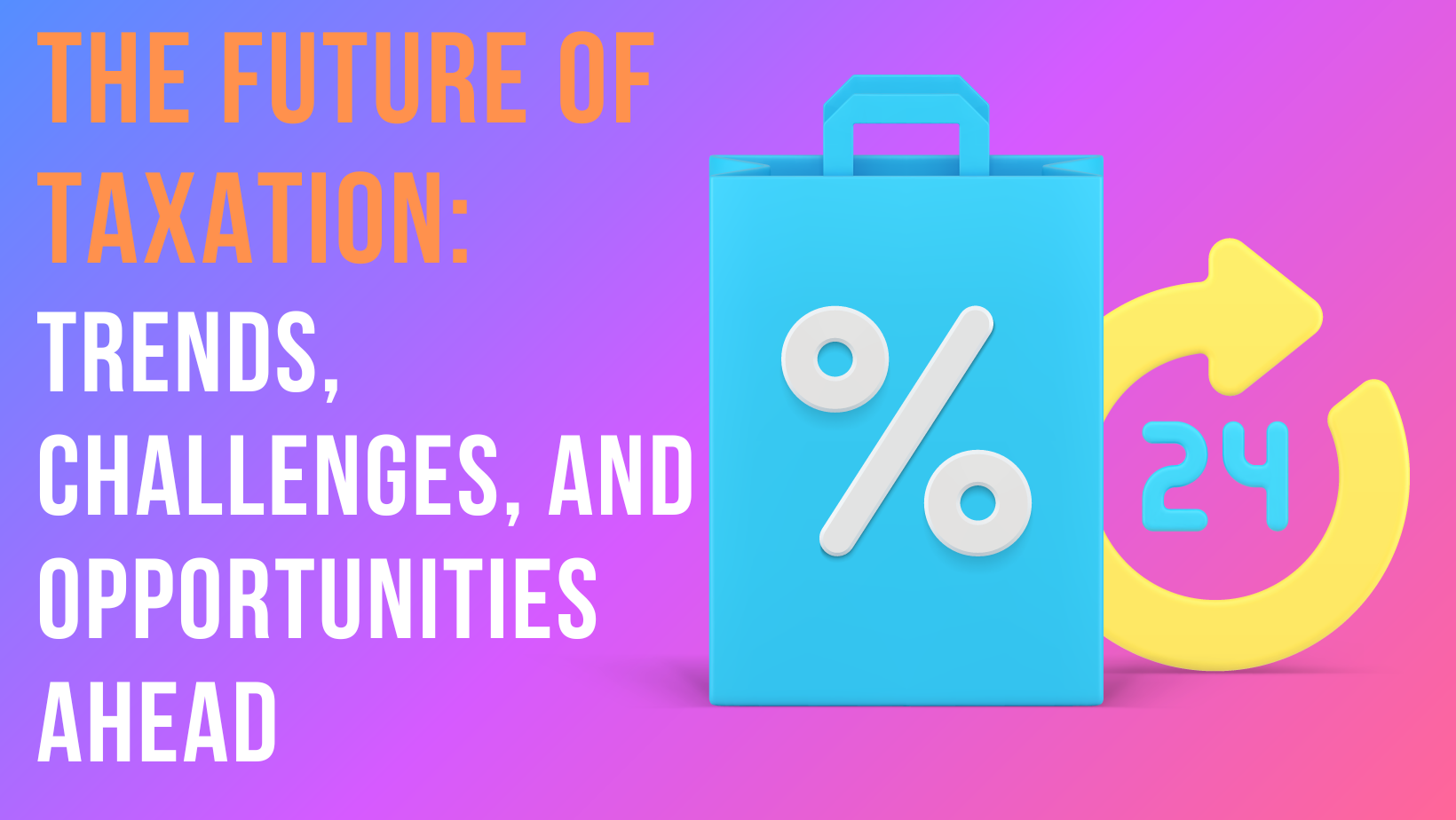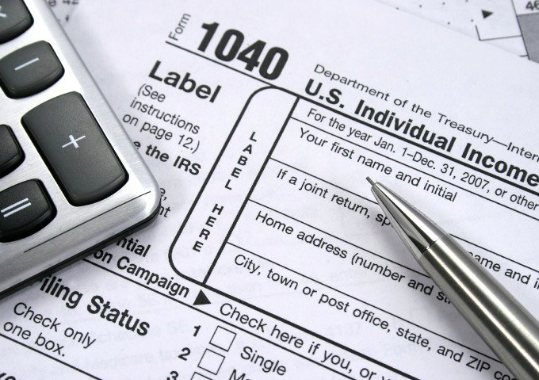When it comes to taxes, change is a constant. From the earliest records of civilization to the modern digital age, taxation has evolved alongside societies, technologies, and economic systems. However, the pace and scale of change in taxation seem to be accelerating, driven by a confluence of global trends, challenges, and opportunities.
The future of taxation is a crucial and intriguing topic for policymakers, businesses, individuals, and scholars alike. It raises questions about the nature of taxes, their administration, regulation, and enforcement in the years and decades to come. Additionally, it prompts us to consider the effects that taxes may have on the economy, society, and the environment. In this article, we will explore some of these inquiries.

The future of taxation is a crucial and intriguing topic for policymakers, businesses, individuals, and scholars alike. It raises questions about the nature of taxes, their administration, regulation, and enforcement in the years and decades to come. Additionally, it prompts us to consider the effects that taxes may have on the economy, society, and the environment. In this article, we will explore some of these inquiries.
Trends in Taxation
- The adoption of digital technologies is revolutionizing the way governments collect and administer taxes, with online portals and automated processes streamlining the process.
- Data analytics is also becoming increasingly important, allowing tax authorities to identify patterns of tax evasion and improve compliance.
- There is a growing focus on environmental taxation and carbon pricing as countries strive to combat climate change and incentivize sustainable practices.
- Many countries are shifting towards consumption-based taxes, such as value-added taxes (VAT), which are seen as fairer and more efficient than traditional income taxes.
Challenges Facing Taxation
- Tax evasion, avoidance, and corruption continue to be major challenges for tax systems worldwide. Tax havens, offshore banking, and financial secrecy make it difficult for governments to track and collect taxes.
- The globalization of the economy and the rise of multinational corporations has made it increasingly difficult to tax businesses fairly.
- Growing income inequality is putting pressure on tax systems to be more progressive, with many calling for higher taxes on the wealthy to fund social programs and reduce poverty.
- The rise of the gig economy and freelance work is creating new challenges for tax systems, as traditional employment models and tax structures may not be adequate to capture income from non-traditional sources.
Opportunities for the Future of Taxation
- The implementation of innovative technologies, such as blockchain, can offer tax systems a secure and transparent means to track and collect taxes, minimizing the chances of fraudulent activities and corruption. Collaborative consumption models, like the sharing economy, can also pave the way for novel tax structures that account for income from these sources.
- Simplification of tax systems can be achieved through the adoption of universal basic income or other social safety net programs, eliminating the need for complex tax credits and deductions. This move can significantly reduce the administrative burden on taxpayers and governments.
- Furthermore, the prospect of a globally coordinated tax system is on the horizon, with the potential for international collaboration and agreement on tax standards. Such an approach can discourage tax evasion and promote fairness across borders, providing equal opportunities for taxpayers and businesses worldwide.
Also read:
The Taxation of Cryptocurrency: What You Need to Know
Income Taxation 101: Understanding the Basics of How Taxes Work
Is Cryptocurrency Taxed in India?
Tax on Winnings of Game Shows and Lottery
FAQs
What are some of the biggest challenges facing tax systems in the 21st century?
In the 21st century, what are some of the hurdles tax systems are up against? The significant obstacles include the effects of globalization and digitalization, and the gig economy’s growth. Furthermore, tax evasion, avoidance, and corruption are prevalent challenges, along with the necessity to strike a balance between fiscal sustainability, economic progress, and social welfare.
How can technology contribute to enhancing taxation in the 21st century?
Digital tools can simplify and automate tax procedures, minimize compliance expenses, and enhance data analysis and projection capabilities. Additionally, big data and machine learning can assist tax authorities in more effectively detecting and addressing tax evasion and fraudulent activities.
How can tax systems support sustainable development?
Tax systems can play a role in encouraging sustainable practices like resource efficiency, renewable energy, and sustainable agriculture. Carbon pricing and emissions trading can offer economic motivations to cut down greenhouse gas emissions, while taxes and subsidies can encourage the implementation of eco-friendly technologies and practices.
How can tax systems promote inclusive growth and social protection?
Taxation can play a vital role in promoting social protection and inclusive growth. Progressive taxation can help to reduce income inequality, while social security systems can provide a safety net for vulnerable groups. Taxation can also be used to fund public goods and services, such as education, healthcare, and infrastructure, that can improve social and economic outcomes for all.
What are some new developments in taxation?
The utilization of data analytics and artificial intelligence to detect tax fraud and non-compliance is an emerging trend in taxation. Another trend is the move towards digital taxation, which seeks to tax corporations based on their digital operations and income, rather than physical presence. Additionally, there is increasing attention on green taxation, like carbon taxes, to encourage sustainability and address climate change.
In what ways has globalization impacted taxation?
Globalization has facilitated the movement of funds and assets across borders, posing challenges for tax authorities in their tax collection efforts. This has also fueled a race to lower tax rates among countries, as they vie to attract businesses and investments. Nonetheless, globalization has also spurred greater collaboration and coordination among nations in tax-related matters.
How has the gig economy affected taxation?
The gig economy’s growth has made it more challenging for tax authorities to monitor and tax gig workers’ income. Furthermore, the classification between employee and self-employed status can be ambiguous, posing difficulties in determining the correct tax treatment. Consequently, debates have emerged on whether gig workers should be subjected to the same tax responsibilities as regular employees.
How do tax policies impact economic growth?
Tax policies can play a crucial role in shaping economic growth by influencing investment, consumption, and innovation. Reduced tax rates for individuals and businesses can encourage investment and boost consumption. Similarly, targeted tax benefits for research and development can stimulate innovation. Nevertheless, tax policies must balance the goal of promoting economic growth with ensuring fiscal responsibility.
How can tax system transparency and accountability be improved?
Tax system transparency and accountability can be enhanced through various measures, such as enforcing public reporting requirements, disclosing tax information, and conducting independent audits. Tax authorities can also engage in better communication with taxpayers to promote compliance and understanding. Furthermore, there is a growing global effort towards international tax transparency and collaboration to tackle tax evasion and avoidance.
Conclusion
In summary, the future of taxation presents numerous challenges and opportunities, requiring tax systems to adjust to the evolving economic, social, and technological environments while ensuring fairness, transparency, and accountability. Governments must strike a balance between fiscal sustainability, economic growth, and social welfare, all while addressing the dangers of tax evasion, avoidance, and corruption.
Simultaneously, taxation presents numerous prospects for sustainable development, innovation, and inclusive growth through the application of technology. Only by seizing these opportunities and overcoming the challenges can tax systems continue their crucial role in funding public goods and services, redistributing income and wealth, and regulating economic behavior in the 21st century.



